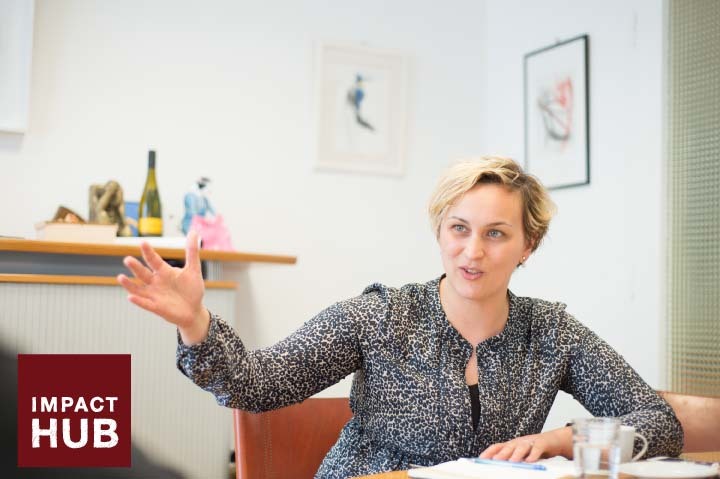Change is in the air every day at the Impact Hub in Pioneer Square. But today, the open spaces of the incubator/community center will be even more charged with potential as upward of 500 change agents from more than 80 cities around the world will gather with one goal in mind: to make cities work better.
The reason for the gathering forces is Unlikely Allies, the annual flagship event of the Impact Hub Network, which extends to 81 other locations around the world. During the two-day festival, innovators in technology, business, NGO work, government, and art from all over the world will meet, make connections, and share the ideas that will drive social change on topics ranging from housing and homelessness to arts and climate-change mitigation. They, and anyone else interested in the future of our cities, will take in lectures and performances and even participate in “Learning Journeys” that will test participants’ perceptions and theories by taking them out into the city to interact with the everyday people who would benefit from positive social change.
We spoke with Impact Hub managing director Gabriela Gandel to learn more.
Unlikely Allies sounds like an exciting and innovative festival—why is Seattle the site? We chose Seattle and Seattle chose us. Seattle bid against other Impact Hub cities to host this festival, and they won the competition mainly because Seattle is actually leading the way in a lot of the topics that we’re exploring around the future of cities. From the recycling initiatives to some of the civic engagement, you have a track record of having citizens taking to heart building a city they want to live in and realizing that agenda—we were highly inspired by that.
Here in Seattle, we’re known for the “Seattle Process”—the idea that we spend more time talking about what we’re going to do than actually doing it. It sounds like you think that the Process is a positive. I think the fact that your civic agenda is strong already—yes, there’s a lot of dialogue, but there’s a lot of good dialogue with everyone, not just the elite. It’s actually with the citizens, the innovators, with everybody else that’s affected. All of the minorities, the edges, are in the conversation. Yes, the process takes longer when you want to be truly engaging with all of the stakeholders, but most likely you come up with a more effective, longer-term solution because you have had the right planning.
It sounds as though Impact Hubs are uniquely invested in that kind of collaborative process. How can Impact Hub members take advantage of a long-term process like Seattle’s? Impact Hub is an ongoing infrastructure—Impact Hubs are there all the time. [Unlikely Allies] is not just a festival, it’s not just a program; it’s an ongoing infrastructure that can host a conversation and constantly turn it to action, versus having a one-off.
What’s unique about Unlikely Allies? Is there something in the program that distinguishes it from other do-gooder conferences? We’re building Unlikely Allies around our Learning Journeys. The Learning Journeys will be happening on the sixth of July in the morning. They will actually tour Seattle—going in different points in the city where innovation is happening around that specific thing. Learning Journeys are a really rad place to have a debate around a subject. They inspire a challenging thought, or maybe a different way of thinking about an issue. Anyone who goes on a Journey will meet a population of the city that’s maybe a bit more disadvantaged. This is our chance to challenge our perspective and hear those people.
What do you think attendees will take away from the festival? This is not just about big-thought leaders and institutions. Seventy percent of the world’s population will soon live in a city. So this is in our personal interest as humans to be able to have a voice and have a say and shape the future of cities. And maybe some of us are intimidated to participate in national debates, or global debates. But in a local sphere we can all participate and, with using the networks of Impact Hubs, we can connect these local conversations for more powerful action together.
The festival is open to the public; registration for parts or all of the programming can be purchased at unlikelyallies.net.




